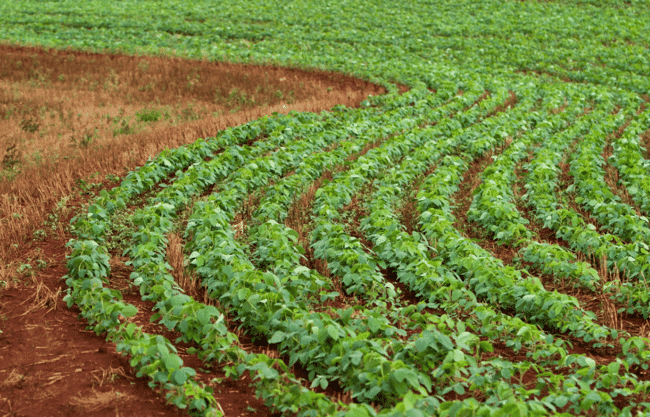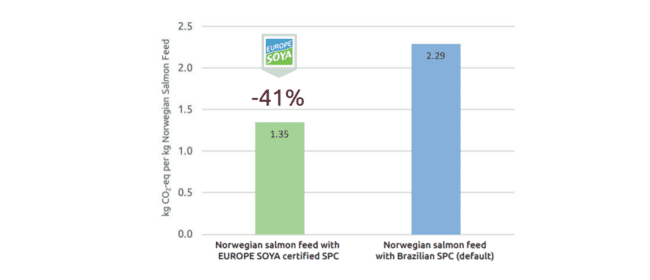
© BioMar
This is the figure reached in a recent study by Austria’s Research Institute of Organic Agriculture (FiBL), which was commissioned by Donau Soja.
The paper explains how soy protein concentrate (SPC) from Brazil is often “related to social and environmental concerns such as deforestation and conversion of natural ecosystems, illegal pesticide use, land degradation and exploitation of the rural poor,” according to Donau Soja.
Europe Soya certified crops – which are grown in Serbia, Romania and Croatia before being processed into SPC in Kaliningrad – offer a “more sustainable, non-GM, regional and transparent soya supply," according to the organisation. It also claims that sourcing these crops contributes to a climate friendly agri-food system in Europe and strengthens regional farmers.

41% mitigation of CO2-eq for average Norwegian salmon feed with Europe Soya certified SPC vs. salmon feed with overseas SPC © Donau Soja
If the Norwegian salmon feed industry used Europe Soya-certified SPC, instead of the Brazilian equivalent, it could reduce emissions by 1.5 million tonnes CO2 equivalent, which is almost 3 percent of Norway’s national gross greenhouse gas emissions, says Donau Soja.
The results confirm that land use change is the biggest lever to cut down on CO2 equivalent emissions. Additionally, they show reduced transport emissions in Europe Soya certified scenario compared to Brazilian sourcing.
According to the paper’s calculations, the carbon footprint of 1 kg of Europe Soya certified SPC is 1.6 kg CO2 -eq. This is 4.2 times less than the Brazilian SPC default (6.7 CO2 -eq/kg SPC).



